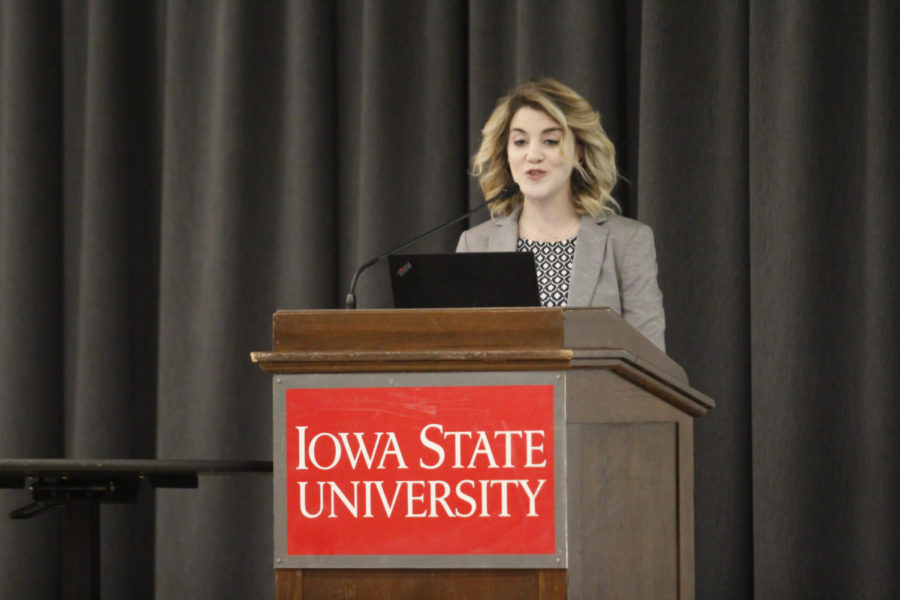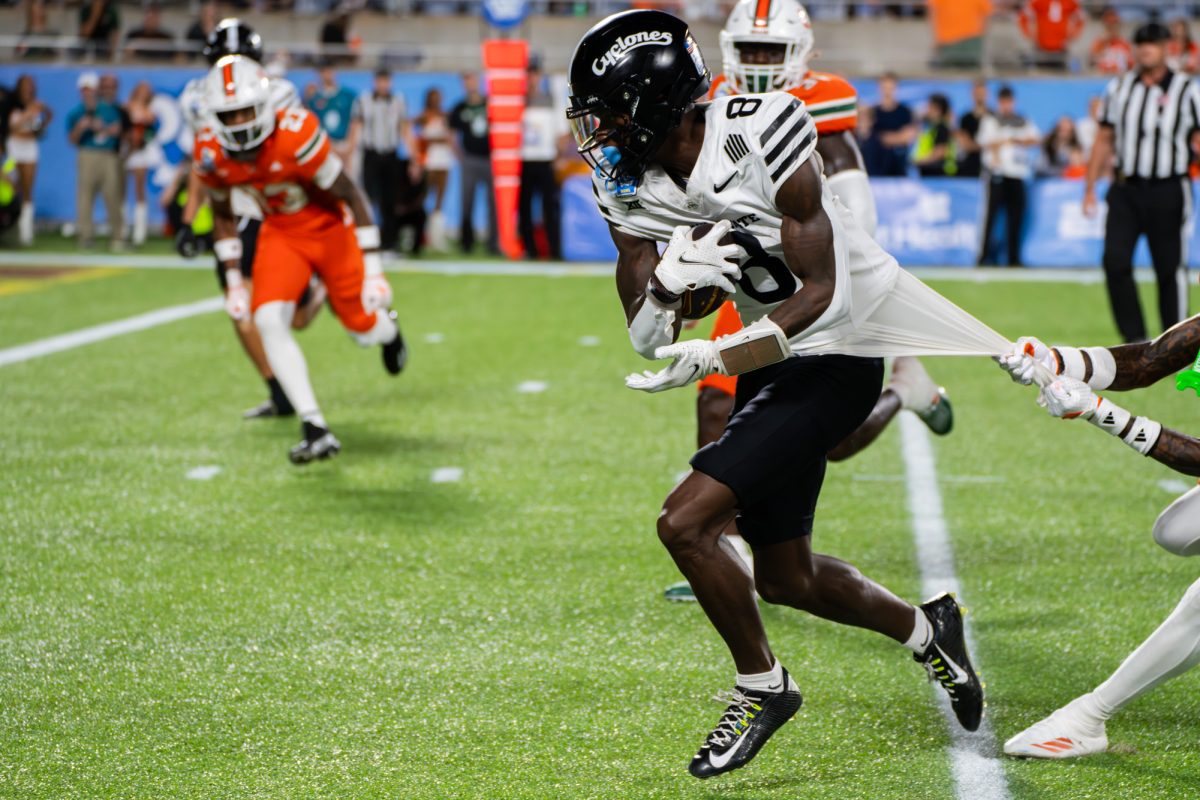ACLU organizer encourages voters to press candidates, vote on issues
Ari Fleisig, an organizer with the American Civil Liberties Union, spoke at Iowa State on Jan. 22 about the organization’s positions and the Iowa caucuses.
January 22, 2020
Ari Fliesig, an organizing specialist for the American Civil Liberties Union (ACLU) delivered a lecture at the Memorial Union about the organization’s “Rights for All” campaign late Wednesday.
The talk came in the middle of a busy election season for Iowa, with candidates constantly visiting and advocating their policy positions to voters. Fliesig shared positions the ACLU has been advocating for in its newest campaign. Four core policies were discussed: voting rights, criminal justice issues, immigration and access to abortion services.
The ACLU maintains every American over the age of 18 should be eligible to vote. This would include people who have been imprisoned and those currently in prison.
Iowa has the “worst record” when it comes to voting rights for currently and formerly incarcerated persons, and prohibiting such individuals from voting is a clear violation of their civil rights and civil liberties, Fliesig said.
Criminal justice reform is another topic the organization highlights.
Their goal is to reduce the number of people in prisons and jails by 50 percent nationwide. This would include federal prisons as well as state institutions.
Fliesig said this goal could be accomplished through the decriminalization of drug possession, changes to the bail system, shortening of sentences and elimination of policies such as three-strike laws that increase penalties after repeated offenses.
Immigration was addressed in the form of the elimination of Immigration and Customs Enforcement (ICE) detainers. A detainer allows ICE to have a law enforcement agency detain a person they believe is eligible for removal from the United States on probable cause. The ACLU seeks to reduce the number of people in immigration detention by 75 percent.
“We’re also asking to have a fair and reasonable pathway to citizenship,” Fliesig said.
If accomplished, several million illegal immigrants would be eligible to be granted citizenship, according to Pew Research Center estimates.
The last highlighted position of the organization is on the issue of abortion.
It seeks the repeal of the Hyde Amendment, which prohibits federal funds from being used for abortion procedures, leaving the choice to state governments.
Fliesig also called for the lifting of other bans on insurance coverage of abortions. She said the bans create barriers for poorer women to receive abortion services.
“Frankly, these are issues that we felt and were able to determine were issues that directly affected folks in the first four states [to vote in presidential nominating contests] and around the country,” Fleisig said.
The organization sent surveys to all the Republican and Democrat presidential candidates.
Fliesig said President Donald Trump’s campaign has not responded to the form but one of his primary challengers, Bill Weld participated in an event with the ACLU.
“We are definitely proud to be non-partisan,” Fliesig said.
The lecture concluded with a reminder of how caucuses work. To participate, caucusgoers must be eligible to vote and turn 18 by the Nov. 3 general election and be registered with the party that hosts the caucus.
Fliesig stressed the significance of Iowa’s voters because of their first-in-the-nation caucus status and encouraged people to vote for candidates that align with the ACLU’s positions.
“We have become a major predictor of candidate viability,” Fliesig said.







